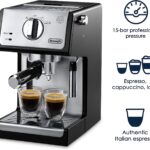Performance and Nutrition, get it now for you. When it comes to achieving peak performance, whether in sports, academics, or your daily life, the importance of proper nutrition cannot be overstated. Just as a car requires high-quality fuel to run efficiently, our bodies need the right nutrients to function optimally. In this article, we will explore the intricate relationship between performance and nutrition, highlighting how the food we consume plays a vital role in achieving our goals.
The Fuel for Performance
Imagine a world-class athlete stepping onto the field without having properly fueled their body. It’s like expecting a car to race without gasoline – it simply won’t go very far. Nutrition provides the fuel that powers our bodies, and the type and timing of that fuel can significantly impact performance.
- Energy Balance: Calories are the basic units of energy, and maintaining the right energy balance is crucial. Athletes require more calories to meet their high energy demands, but it’s not just about quantity; quality matters too. Whole, nutrient-dense foods provide sustained energy compared to empty calories from processed foods.
- Macronutrients: Carbohydrates, proteins, and fats are the three macronutrients that form the foundation of our diet. Carbs are the body’s primary energy source, while proteins repair and build tissues, and fats support various functions, including brain health. The right balance of these macronutrients is essential for different types.
- Micronutrients: Vitamins and minerals are equally vital for performance. They play roles in muscle contraction, energy production, and overall health. Deficiencies in these micronutrients can lead to fatigue, weakness, and decreased performance.
Specific Performance Nutrition
The type of performance you aim to excel in also dictates your nutritional needs. Let’s look at some specific examples:
- Sports: Athletes often require specialized diets tailored to their sport. For instance, endurance athletes need ample carbohydrates to sustain prolonged effort, while strength athletes may prioritize protein intake for muscle growth and recovery. Hydration is also a crucial factor in sports nutrition, as even slight dehydration can impair performance.
- Academic: Nutrition isn’t just about physical endeavors. Brain health plays a significant role in academic performance. Omega-3 fatty acids found in fish and nuts are known to support cognitive function, while antioxidants in fruits and vegetables protect brain cells from oxidative stress.
- Work: In the workplace, maintaining steady energy levels throughout the day is vital. A balanced diet rich in complex carbohydrates, lean proteins, and healthy fats can help sustain focus and productivity. Avoiding sugar crashes and energy slumps can be achieved through mindful nutrition.
Timing is Key
When we eat also influences our performance. Pre-event nutrition provides the energy required for immediate tasks, while post-event nutrition aids in recovery and long-term performance. Proper meal timing can make a substantial difference:
- Pre-Event Nutrition: Consuming a balanced meal or snack 1-2 hours before physical or mental tasks can ensure that your body has the necessary energy and nutrients to perform optimally.
- Post-Event Nutrition: After performance, replenishing glycogen stores, repairing muscle tissue, and rehydrating are essential. Protein-rich foods, carbohydrates, and fluids can expedite recovery.
Some common food products
Carbohydrates:
- Whole grains (e.g., brown rice, quinoa, oats)
- Whole wheat pasta
- Sweet potatoes
- Bananas
- Whole-grain bread
Proteins: 6. Lean poultry (chicken, turkey)
- Lean cuts of beef or pork
- Fish (salmon, tuna, cod)
- Eggs
- Greek yogurt
- Tofu and tempeh (for vegetarians and vegans)
Fats: 12. Avocado
- Nuts (almonds, walnuts, pistachios)
- Seeds (flaxseeds, chia seeds)
- Olive oil
- Fatty fish (salmon, mackerel)
- Nut butters (peanut butter, almond butter)
Fruits and Vegetables: 18. Berries (blueberries, strawberries, raspberries)
- Leafy greens (spinach, kale, Swiss chard)
- Citrus fruits (oranges, grapefruits)
- Broccoli and cauliflower
- Carrots
- Bell peppers
Dairy and Dairy Alternatives: 24. Low-fat or non-fat milk
- Cheese (in moderation)
- Fortified almond milk or soy milk (for dairy alternatives)
Hydration: 27. Water
- Coconut water
- Sports drinks (for intense physical activity, in moderation)
Snacks: 30. Trail mix (nuts, dried fruits, seeds)
- Hummus with vegetable sticks
- Greek yogurt with honey
- Rice cakes with almond butter
- Cottage cheese with fruit
Supplements (if recommended by a healthcare professional): 35. Whey protein powder
- Multivitamins (to address micronutrient deficiencies)
- Omega-3 fish oil capsules
Conclusion
In the quest for peak performance, we often focus on training, practice, and skill development. While neglecting the role of nutrition. However, as we’ve explored in this article, what we eat and when we eat it can significantly impact our performance, Whether in sports, academics, or our daily lives.
Proper nutrition isn’t a one-size-fits-all concept. It’s essential to tailor your dietary choices to your specific goals and activities. Consultation with a registered dietitian or nutritionist can help create a personalized nutrition plan to optimize your performance and overall well-being. Remember, your body is your most valuable asset – fuel it wisely for the journey ahead.
Remember, individual dietary needs vary, so it’s essential to consider your specific goals and consult with a healthcare professional or registered dietitian to create a personalized nutrition plan tailored to your unique requirements. Additionally, always pay attention to portion sizes and avoid excessive consumption of processed and sugary foods for optimal performance and overall health.










